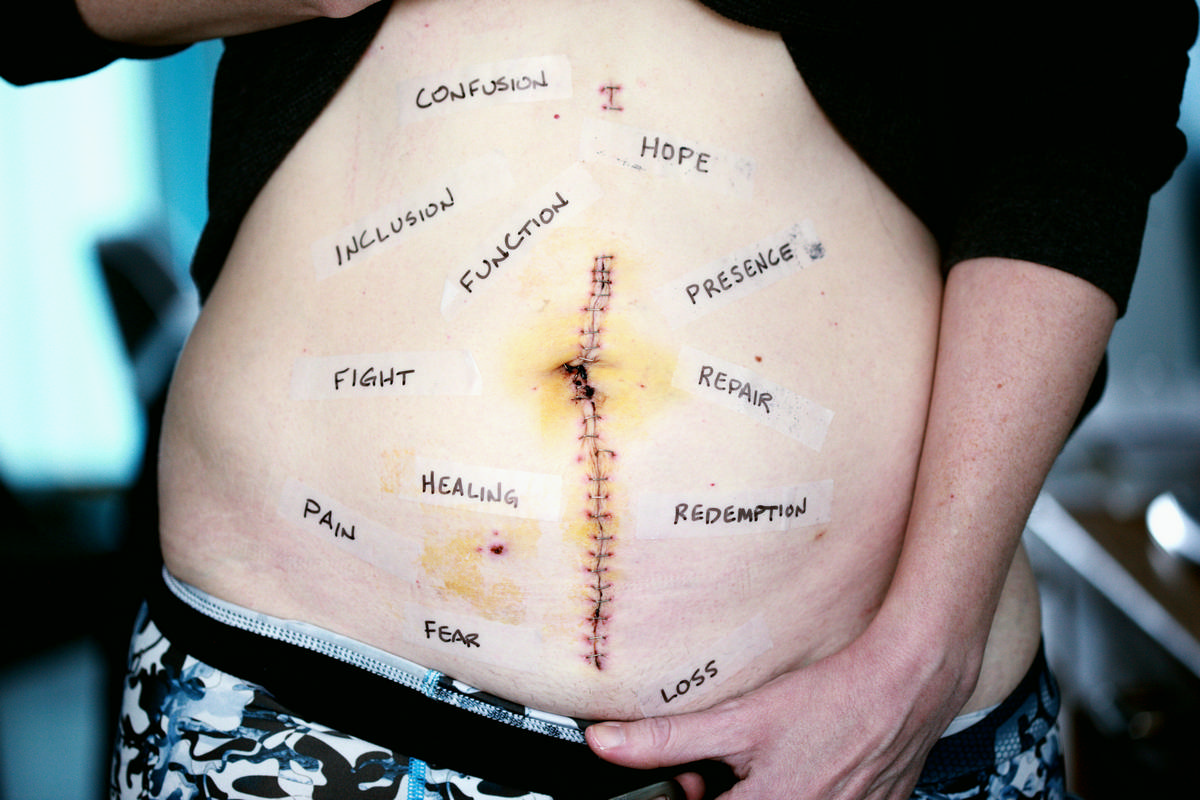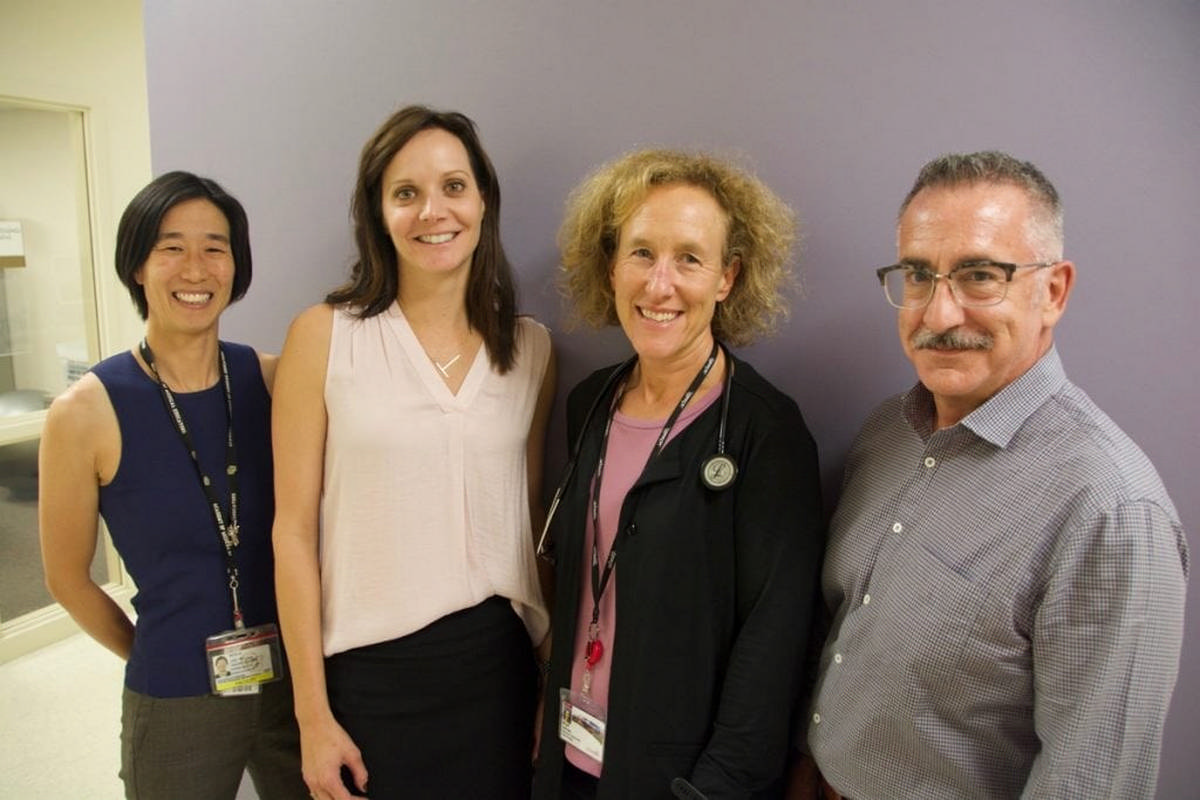Meet the UCHealth Team Consolidating Trans Healthcare

Addison Herron-Wheeler is OUT FRONT's co-publisher and editor-in-chief and friend…
One of the most daunting things for trans folks is going to the doctor. OBGYN care often leads to trans men being misgendered; psychiatrists aren’t a safe space as often as they should be, and in general, trips to the doctor can mean shame, fear, and distress instead of health and healing. As a result, too many trans folks don’t see care providers as often as they should The UCHealth Integrated Transgender Program aims to change that.
“We wanted a model of care for trans individuals where all the specialties were in one place,” explained Doctor Robert Davies, associate professor of psychiatry and medicine. “A place where patients could come in and see numerous providers from varying specialties all in the same visit, so that we could coordinate and facilitate access to care. I think we discovered several years ago that there were a number of us from different specialties doing our own things. Working with trans individuals, it is very hard to coordinate care between specialties It puts a lot of pressure on the patient to seek out care from trans-friendly or trans-informed providers.”
While endocrinology usually refers to the process of studying hormones, the clinic is so much more than just hormone therapy. In addition to looking at how hormones interact with other medicine, prescription or otherwise, they also try and include as many other providers in the same place so that trans folks can get all of the help they need. Currently, they offer an internist to work with patients on the care they need, an OBGYN, a psychiatrist, and general care. They also make it a point to keep the clinic a gender-neutral setting.
We specifically selected this model to make it easier for people to get the access to the care they need.
“With the ACA passing and more of our patients getting Medicaid, as well as some of the regulations around improving access, lack of access to care, restrictions to trans healthcare, and discrimination, we were seeing a lot more patients coming into our system who are actually seeking out affirmative care,” explained Dr. Rita Lee, associate professor at the University of Colorado School of Medicine. “We specifically selected this model to make it easier for people to get access to the care they need.”
In addition to
offering this clinic, the providers who are a part of it are attempting to
provide trainings throughout the hospital so that all the care providers there
know how to treat trans patients. They still realize that the idea of going to
a care provider who isn’t specifically part of a trans clinic can be daunting,
however, so they are making it a point to have as many clinic hours as
possible.

“There have also been some recent changes within our electronic medical records recently that actually make it a lot easier for patients to express their preferences about how they prefer to be called and their pronouns, and the staff really needed some training in that,” Dr. Lee said. “So, we’ve been really trying to help people understand why this is important and to be respectful of our patients.”
In addition to making it easier for trans folks to get all their care at once without fear of shame or stigma, another reason to combine the clinic is because, through this unification, the doctors are able to see patients together and look at their problems from all different perspectives. It’s common for several doctors at once to sit down with a patient, with one focusing on the patient’s mental health, another thinking about how hormones may be affecting them, and another asking about their energy levels due to a gynecological issue.
It’s really about the patient and the transition and everything that goes along with that, and trying not to just take care of each of our specialties, but really thinking about the patient as a whole.
“I think, part of what’s unique about our clinic is, it’s a very holistic approach to the patient,” said Dr. Micol Rothman, co-founder of the program. “Because we’re really trying to take into account all the different needs in terms of mental health, primary care, and hormonally what’s going on, this can be a time of a lot of questions for patients and families. So, we feel like by having all these different providers, we’re kind of hitting things from different sides, and really, hopefully giving holistic care.”
“I think the approach is about more than just the hormones,” she added. “It’s really about the patient and the transition and everything that goes along with that, and trying not to just take care of each of our own specialties, but really thinking about the patient as a whole.”
“I think, from the clinical side, we’ve developed a really strong program, bringing in the different specialties to treat the patients within this setting,” Dr. Sean Iwamoto said. “We are working with a medical student to get some patient perspectives on this model of care, which is, as we’ve said, very unique. And we are interviewing those patients by phone, getting feedback directly from, you know, in their words about what they’ve liked, what they would like to see improved.”
In addition to all this work, the clinic is also working on doing some more research to better understand hormones and the interactions between hormone treatments and medications when it comes to trans patients.
While the clinic is still only open two days a month, they strive to provide the best care possible while they are open and serve the trans community the healthcare they’ve seriously been lacking.
“Often, trans patients tend not to seek out preventative care and have overall worse health outcomes,” Dr. Rothman added. “With the option to come here, we’re hoping that changes.”
What's Your Reaction?
Addison Herron-Wheeler is OUT FRONT's co-publisher and editor-in-chief and friend to dogs everywhere. She enjoys long walks in the darkness away from any sources of sunlight, rainy days, and painfully dry comedy. She also covers cannabis and heavy metal, and is author of Wicked Woman: Women in Metal from the 1960s to Now and Respirator, a short story collection.










